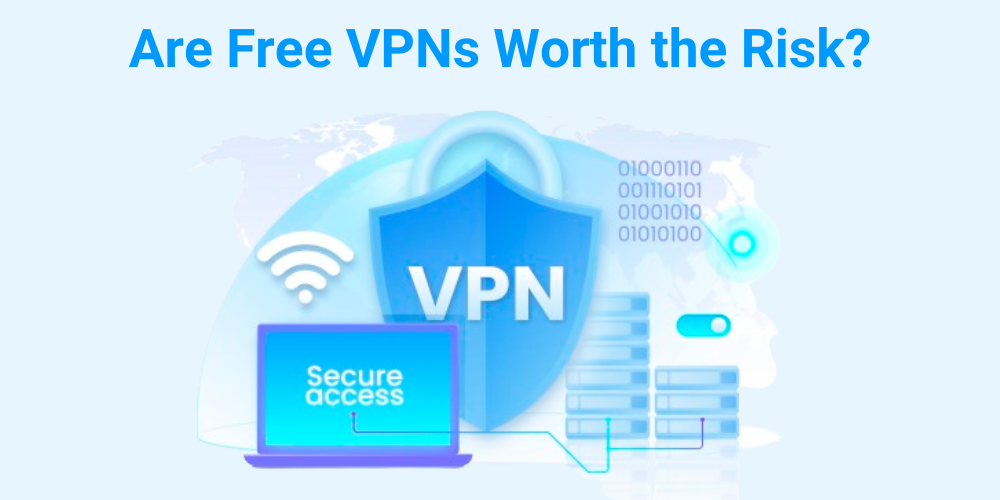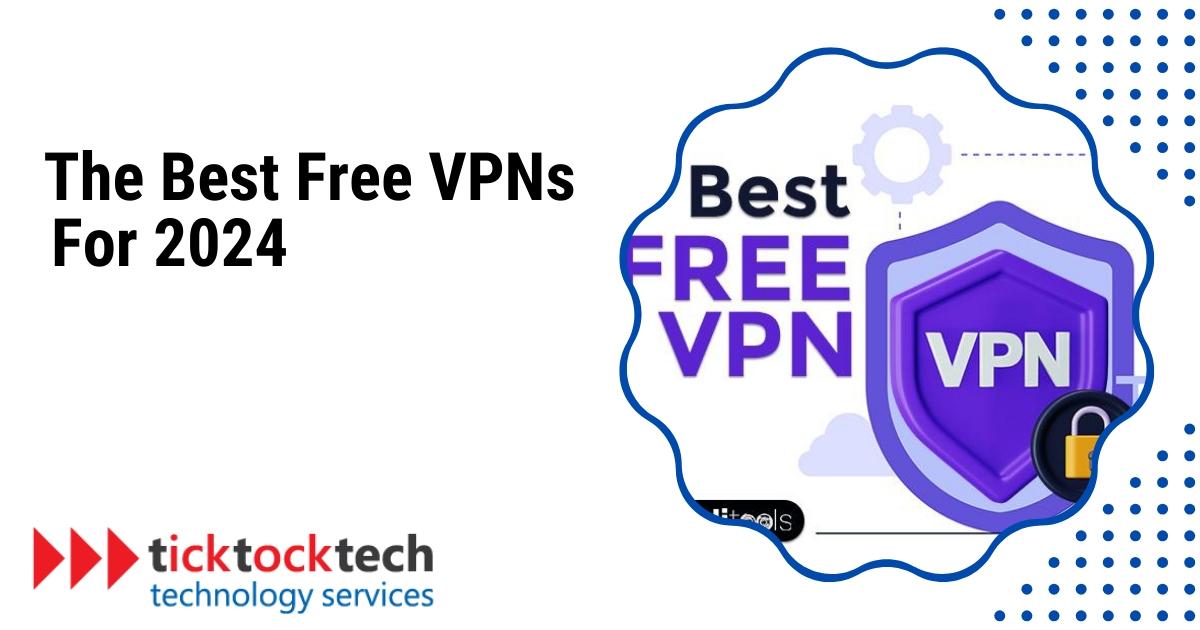Are you looking for a way to stay safe online without sacrificing your wallet? If so, you’ve come to the right place.
In this article, we will take you through the best free VPNs that will help you stay protected online.
What do VPNs do?
Let’s take a moment to understand what VPNs actually do. Imagine you’re sending a letter to a friend, but instead of sending it directly through the regular mail system, you place it inside a locked box and send it through a secret tunnel. Only your friend has the key to unlock the box and read the letter. That’s essentially how a VPN works for your internet traffic.
VPNs, or Virtual Private Networks, establish a secure and encrypted connection between a user’s device and the internet. By routing your internet traffic through a remote server, VPNs mask your IP address and encrypt your data, protecting your online activities from prying eyes.
Aside from shielding your personal information from hackers and surveillance, VPNs also allow you to bypass geo-restrictions, accessing content that may be blocked in your country.
Now, let’s discuss the types of VPNs available: free and paid options. The decision to choose between a free or paid VPN depends on your needs and budget. Free VPNs can be a good starting point for basic online security and bypassing simple geo-restrictions. However, if you require more advanced features, faster speeds, and a higher level of privacy, a paid VPN service may be a better option.
Why are there free VPNs?
Now that you have a clear understanding of what VPNs do, let’s explore why there are free VPNs.
Free or unpaid VPN services have gained popularity due to their accessibility and affordability. While paid VPNs typically offer more robust features, free VPNs serve as an entry point for users who may not be willing to invest in a premium service.
Let’s check out some of the advantages and disadvantages of unpaid VPN services.
Pros and Cons of Free VPNs
Unpaid VPNs come with numerous benefits. However, it’s important to understand these free VPNs have some limitations. Here’s a breakdown of the pros and cons to help you decide if an unpaid VPN is right for you:
Pros of Free VPNs
- Cost-Free: The most crucial benefit is the cost-free advantage. You can enjoy a basic level of security and privacy without spending a dime.
- Accessibility: Free VPNs are readily available and easy to install, making them accessible to everyone, regardless of budget.
- Bypassing Geo-Restrictions: You can access geo-blocked content and websites, expanding your online access and entertainment options.
- Security: Free VPNs typically provide basic encryption for users’ internet traffic, protecting it from potential hackers or surveillance. While the level of security may not be as robust as with paid VPNs, it still adds an extra layer of protection for online activities.
Cons of Free VPNs
- Limited Features and Data: Unpaid VPNs often have data caps and restrict access to features like server locations, streaming support, and high speeds.
- Slower Speeds: Free VPNs often experience congestion due to high user volumes, resulting in slower internet speeds and impacting streaming and downloading.
- Invasive Ads: To generate revenue, unpaid VPN providers display advertisements within their clients or browser extensions. These ads are often disruptive and annoy many users.
- Security Risks: Some free VPNs use weak encryption protocols or outdated security measures, making them vulnerable to cyberattacks and data breaches.
Are Free VPNs Worth the Risk?
While the benefits of free VPNs may be tempting, it’s crucial to consider the potential risks associated with these services. Free VPN providers may need to generate revenue to sustain their operations, and some do so by displaying advertisements or collecting and selling user data.

Therefore, it’s essential to carefully review the privacy policies and terms of service of any free VPN provider you consider using. Exercise caution and choose reputable free VPN providers.
Best Free VPNs for 2024
Here are some of the best free VPNs in 2024, based on their features, security, and privacy practices:
1. Hotspot Shield
Hotspot Shield, known for its impressive download speeds, offers a free version with no technical data usage limit but a time-based usage limit. You can extend your free access by watching ads, granting 15 minutes of usage for every ad. However, the free version has only four server options and is not ideal for changing Netflix streaming regions. Despite being ad-supported, Hotspot Shield provides fast connections, making it suitable for downloading large files.
2. PrivadoVPN
PrivadoVPN, with a 10 GB monthly data limit, offers generous server options with 14 free locations. While the speed may decline compared to premium VPNs, PrivadoVPN allows unlimited device sign-ins, making it suitable for light browsing and accessing streaming libraries. However, the 10 GB data limit may not be sufficient for video streaming.
3. Atlas VPN
Atlas VPN, with a 5 GB monthly data limit, provides access to three free locations. It offers decent speeds and focuses on privacy, offering the same encryption standard for the free and premium versions. It also features extra security and privacy practices in the free plan. However, the limited server options and data usage limit may hinder your daily usage.
4. Surfshark
Surfshark offers a free trial with no data usage limit and full access to premium features for 30 days. It provides speedy connections and strong encryption, with no device limits for both the free and premium versions. However, you will need to pay the initial subscription fee and cancel within 30 days to request a refund.
5. TunnelBear
TunnelBear, known for its interactive user interface and over 40 server locations, offers an 8 GB data limit per month. It allows five simultaneous connections and is suitable for unblocking websites. However, the speed may be sluggish, and the website information regarding the data limit may be inconsistent.
Frequently Asked Questions
Yes, there are legitimate free VPN services available. However, it’s crucial to look out for reputable providers that prioritize user privacy and offer reliable security measures. The free VPNs mentioned in this article, Hotspot Shield, PrivadoVPN, Atlas VPN, Surfshark, and TunnelBear, are reputable options.
Finding a free unlimited VPN is challenging, as most free VPNs have data limits or other restrictions. However, Surfshark’s free trial provides full access to premium features for 30 days without any data usage limitations.
Conclusion
Free VPNs can be a convenient and cost-effective solution for basic online security and bypassing geo-restrictions. However, it’s crucial to understand their limitations and potential risks. The best free VPN for you depends on your specific needs, such as data limits, server options, and speed requirements. Remember to review privacy policies, exercise caution, and choose reputable providers to ensure a safer online experience.

